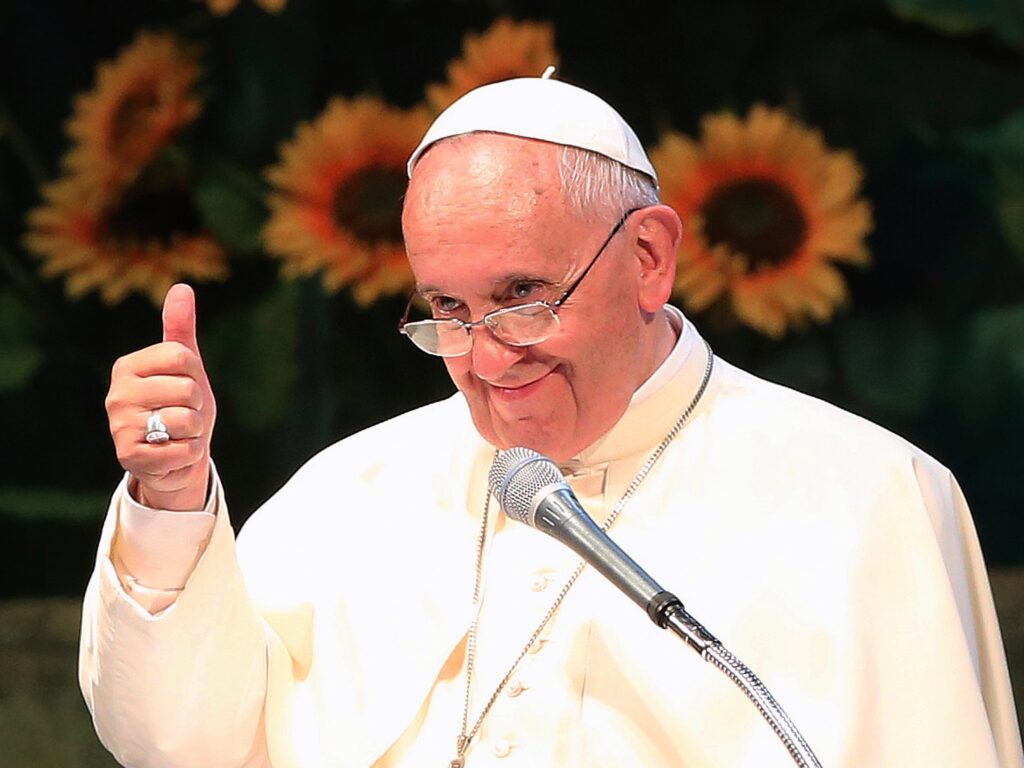Now the Spirit expressly says that in later times some will depart from the faith by devoting themselves to deceitful spirits and teachings of demons, through the insincerity of liars whose consciences are seared, who forbid marriage and require abstinence from foods that God created to be received with thanksgiving by those who believe and know the truth (1 Timothy 4:1-3).
Paul told Timothy that there was an apostasy coming to the church, and would be characterized by forbidding those things that God has made to be received with thanksgiving, including marriage. This prophecy is fulfilled in the Romish church. However, it seems that the longstanding practice of forbidding priests to marry – which has resulted in their natural sexual affections being oriented in ways not created by God to be received with thanksgiving – may change if Pope Francis has his way.
According to various reports, Pope Francis has asked that priests in Brazil be allowed to marry. The request was made by Cardinal Claudio Hummes, the President of the Episcopal Commission for the Amazon, who suggested that allowing priests to marry would end the shortage of priests serving in rural areas on the outskirts of the Amazon jungle. Francis has given the request his thumbs up, although it will have to be finalized by a vote of bishops in the country.
The Pope first raised the possibility of lifting the sanctions against married clergy back in March, when he told a German newspaper, “We must consider if viri probatiis a possibility. Then we must determine what tasks they can perform, for example, in remote communities.” Viri Probatis is the name of the proposal to allow clergy to be married, or more specifically, allow married individuals to performs the roles of clergy. The Pope went on to claim that demanding celibacy of clergy was not a dogma, but was a “discipline.” Of course, clerical celibacy has definitely been a dogmatic decision of the church, dating back to the early days of Rome’s departure from Christianity at the Council of Carthage in 390 (the Council of Nicaea ruled that clergy could not be married after ordination, in keeping with their understanding of Paul’s instruction 1 Corinthians 7:8, but did not prevent married men from serving as clergy). The rulings of the fourth century councils, however, didn’t have widespread enforcement until at least the 11th Century when Pope Gregory the VII declared that priests “must escape from the clutches of their wives.” Pope Urban II, who followed in 1095, had the wives of priests arrested – along with their children – and sold into slavery. This dogma was reaffirmed at the Council of Trent in 1563. Since that time, the demand for celibate clergy has been very, very dogmatic.
Demonstrating that there is no such thing as papal infallibility or a singular testimony of Peter’s supposed office, Francis has made broad departures from Romish teaching, which has conservative Romanists around the world very upset.











